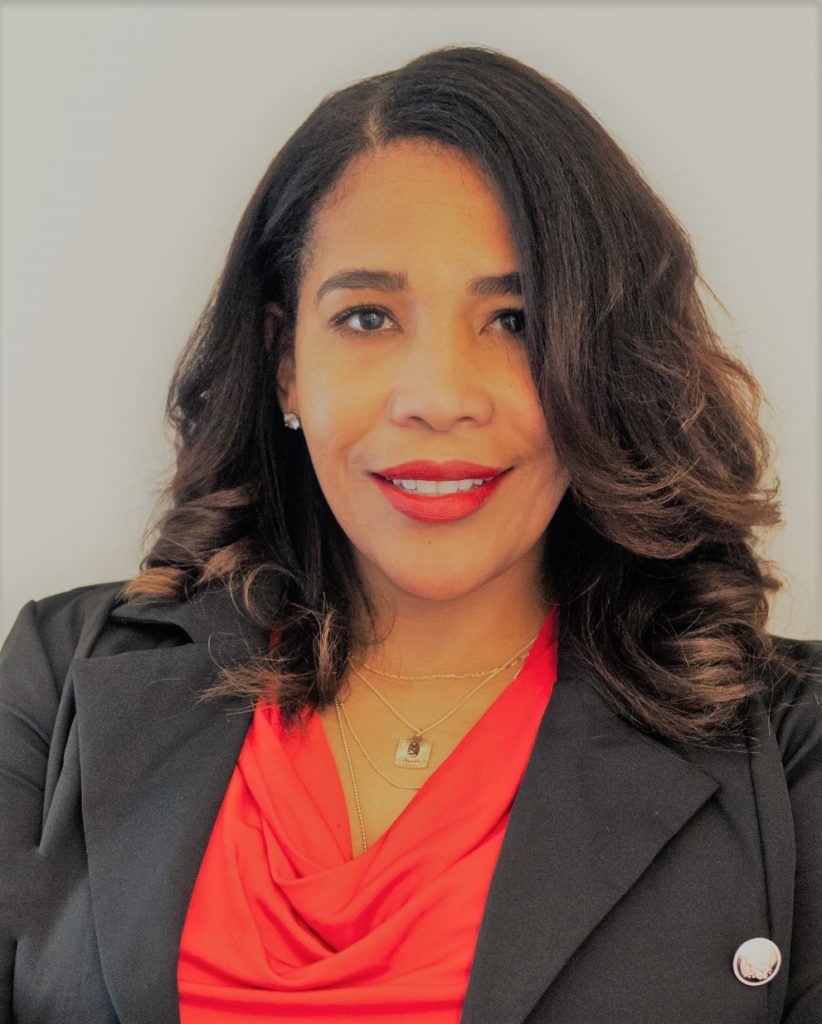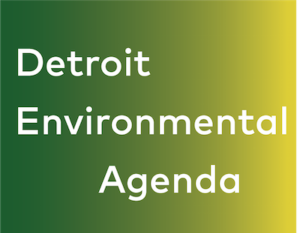Nicole Small
At-Large Candidate for City Council

Q: Where can people go to learn more about your biography? If not readily available online, please describe in 150 words or less, your relevant experience, public offices held (if any), involvement in environmental causes, and membership in any environmental organizations. If you currently hold office, describe any votes or actions demonstrating concern for the environment.
A: I’m a change agent for social and economic equity. As a former UAW member, organizing around issues that have a direct impact on improving working and living conditions for the most vulnerable is second nature. Balancing my career as a HR professional and a public advocate, often results in pushing policies that help shape organizations and communities. I’ve watched Detroit be dissected into marginalized communities. This fueled my passion to seek a formal role as a public servant. In 2018, I ran for Detroit Charter Revision Commission and I was elected with 57,000 votes city wide. Now I’m seeking to build bridges across the city and provide Detroiters with equitable resources and services.
Community
Q: If elected, how will you work with Detroit residents to ensure that they benefit from and partake in the decision-making surrounding local development projects and that potential adverse impacts of those projects are identified, measured, monitored and mitigated? Moreover, how would you work to put more power into the hands of residents to maintain and revitalize their own communities and to access vacant land through the DLBA?
A: I would host district roundtable meetings and listen to the concerns of residents and form a process to prioritize the issues that impact the majority of residents. Currently, I’m an elected official that has an open door policy and I would continue to identify solutions and policies that support the needs of residents. The DLBA actually is an entity that should be supervised by the executive branch. However, as a Councilperson, I would contact the DLBA about a property that the DLBA is preventing a Detroit resident from accessing or that is not being maintained in the community.
Q: If elected, what budget appropriations would you propose to increase investment in needed social and environmental services to help improve the quality of life and health of Detroit residents?
A: [No Response]
Public Health
Q: What long term solutions do you see for addressing vehicle speeds and making our streets safer?
A: I noticed that speeding is more of an issue in neighborhoods and at a bare minimum downtown. I would speak to residents in the neighborhood about whether they would like more traffic enforcement in the neighborhood as opposed to the high volume dispatched downtown. Speed bumps are an option. However, I’ve received feedback from residents that they are not as effective as desired.
Q: How will you work to reduce the negative health impacts of air quality on the residents of Detroit?
A: I would hold bad actors accountable for compromising the air quality and strengthen the standards for businesses that use materials that cause negative health impact on residents.
Q: If elected, what actions will you take to work toward safer, healthier, and more affordable housing for all Detroiters?
A: I would propose that developers receiving tax credits have a portion of the units designated for Detroit residents to qualify based on the AMI of Detroiters, not the tri-county area.
Energy
Q: What are your priorities to reduce emissions and lessen the impacts of climate change in Detroit during your term in office?
A: [No Response]
Q: What are your plans for helping the city transition to renewable energy and how will you ensure that the cost benefits and increased resilience that come from the use of renewables is made accessible to low-income and vulnerable communities across Detroit?
A: I would support policies that ensure renewable energy and benefits to residents that provide access to affordable utilities.
Recycling
Q: How can the city increase recycling, composting, and the use of post-consumer recycled materials, while addressing the city’s litter and illegal dumping problem?
A: The City could create a program that hires people (not a privatized company) to clean up the areas where dumping is occurring and ensure there are separate dumpsters for recycling. Additionally, the City could expand the number of dump sites for residents to dispose of waste properly.
Jobs
Q: What steps would you take to prepare the local workforce to take advantage of and be part of the movement toward a green economy, through qualifying for good paying infrastructure and clean energy jobs, amongst others?
A: Establish a program that offers proper training to DPSCD students and adult residents. The program should include educational component around careers in this field, grants and financial benefits of businesses and community organizations that take advantage of these opportunities.
Water
Q: How will you ensure that clean water is accessible and affordable to all Detroiters?
A: I will support implementing the water affordability proposal by the Bill of Rights coalition.
Q: How will you help municipal agencies and property owners integrate Green Stormwater Infrastructure (GSI) across the city to manage stormwater and reduce drainage charge fees for property owners?
A: I would support removal of stormwater drainage fees to residents. There needs to be a process implemented that charges residents a fair rate and allocated funds to improve the infrastructure.
Optional
Q: Please identify the top environmental concerns to you personally, identify the environmental issue in your community that is the most pressing, and what you would like to do as an elected official to address this most pressing concern.
A: Unaffordable water, excessive waste/dumping and unaffordable utility rates.

